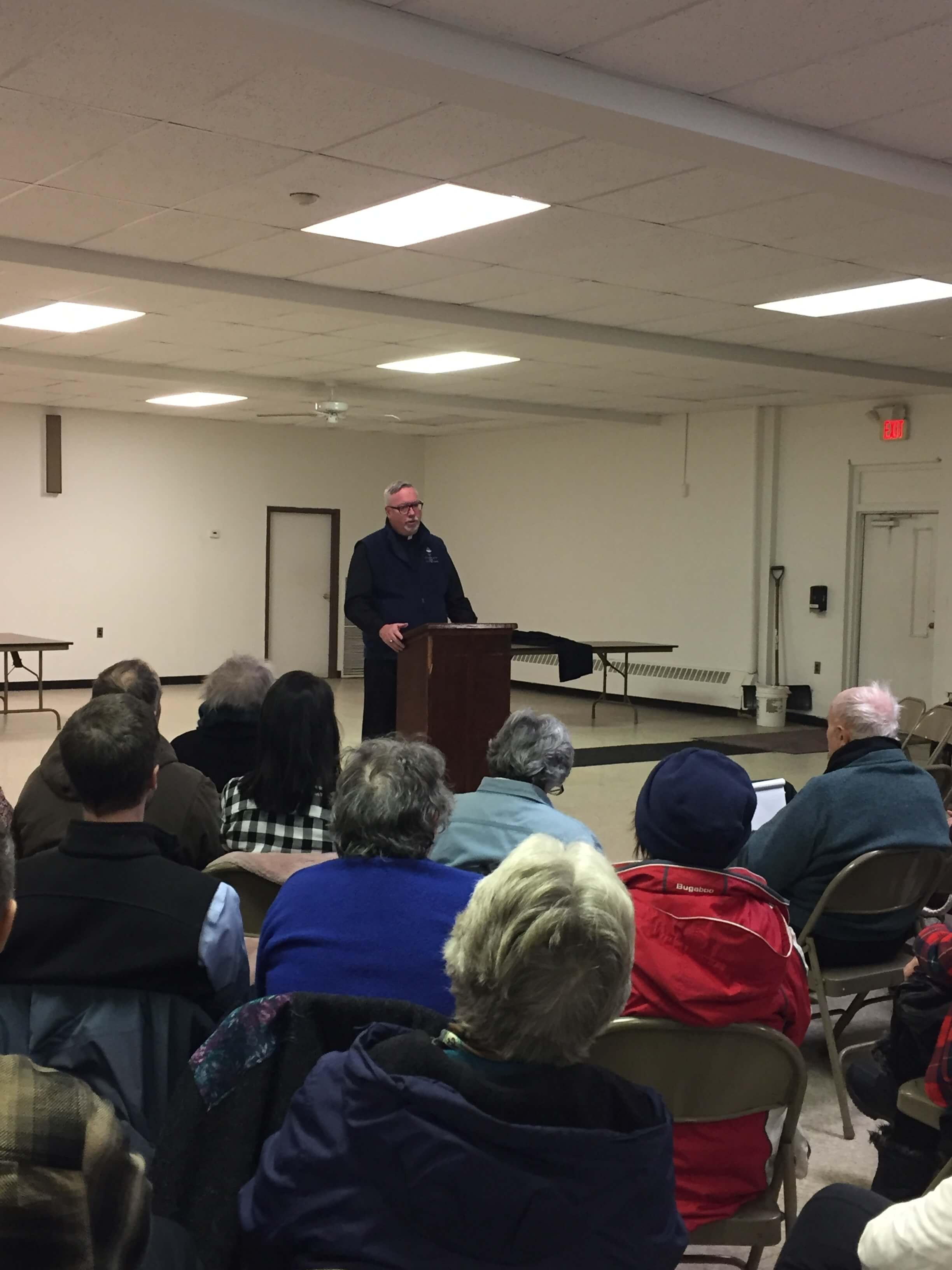
St. Albans Catholic Town Meeting
On Jan. 10, Burlington Bishop Christopher Coyne hosted the first of six Catholic Town Meetings modeled after Vermont’s Town Meeting Day that takes place every March throughout the state. Bishop Coyne said that these meetings were one way to improve communication between himself and Vermont Catholics.
“Improving two-way communication was one of the priorities that came out of the two-year long synod process,” Bishop Coyne said. “Similar to Vermont Town Meeting Day, these meetings are democracy in action and allow me to hear from citizens of the Church about their questions, ideas and recommendations.”
More than 70 people braved the cold and windy weather to participate in the 90-minute meeting at Immaculate Conception (St. Mary) Church hall in St. Albans.
Bishop Coyne opened the meeting with a prayer and provided updates on the financial state of the Diocese, which has been in the black for the last several years with help from a strong stock market. He shared the news that the Diocese was one of only two in the country to receive top rating for financial transparency by a national, non-clergy organization. He also provided the status of the Diocese’s cooperation with authorities regarding task force review of allegations of clergy sex abuse that occurred decades ago.
“We are cooperating with authorities and have a zero-tolerance policy in place regarding allegations of sex abuse against minors. Any allegation we receive is reported to the authorities. There are no priests in ministry today with an allegation against a minor and, since 2002, when we adopted the Charter for the Protection of Children and Young People, there has only been one allegation, which was not substantiated.”
Bishop Coyne explained that a major part of restoring trust in the Church is the disclosure of when and where past abuse occurred and who the abusers were. An independent, volunteer committee of seven lay men and women have begun the process of examining clergy personnel files pertinent to any allegation of abuse of minors and will create a list of priests who have been accused of sexually abusing a minor. This list will be made public in the next several months.
The bulk of the meeting focused on a wide-range of questions from participants: How to bring young families back into the fold? Would allowing priests to marry help with the priest shortage? How do we engage women in leadership roles within the Church? How do we support the many good priests who are tainted by the scandals? How can the Catholic Church get more involved in drug and suicide prevention? Can the Church partner with private and public entities to develop elderly and multi-family housing on vacant Church property? Why did we change the confirmation age? What outcomes do you hope will come out of the pope’s meeting on sex abuse in February?
While Bishop Coyne responded to some questions with information about how the Diocese is beginning to implement strategies to engage young families, support women in leadership roles, help families with addiction through Catholic Charities, his hopes for a zero-tolerance policy from the pope’s meeting in February, he mostly listened.
“I am the pastor of the Church in Vermont, and these meetings allow me to listen to my parishioners,” Bishop Coyne said.

